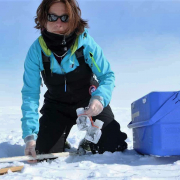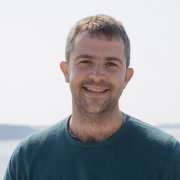Copyright : Laboratoire LEMAR- 2018
Johann Lavaud
European
Campus France-PHC Pessoa
Start Date
06/04/2025
End Date
06/04/2025
Nanomaterials are key to many modern applications in sensing, health, energy, and information technologies. But the fabrication of nanomaterials usually relies on unsustainable use of rare earth materials and environmentally unfriendly and techniques up to cleanroom standard. Recent investigations showed that microscopic algae named diatoms evolved highly periodic nanomaterials with photonic properties. The nanomaterials form in a bio-silicification process in vivo, bearing highly reproducible, low cost, environmentally friendly, and high-quality properties on the same standard as artificially produced nanomaterials. The objective of InterNano is to prospect the use of diatoms, especially the benthic forms that inhabit coastal sediments, as a future natural and alternative resource for nanomaterials.
Laboratory Members
Contributors
- Kevin Heggarty, Département d’Optique, IMT Atlantique, Plouzané, France.
- João Serôdio, Department of Biology and CESAM-Center for Environmental and Marine Studies, Universidade de Aveiro, Portugal.
- Silja Frankenbach, Department of Biology and CESAM-Center for Environmental and Marine Studies, Universidade de Aveiro, Portugal.










